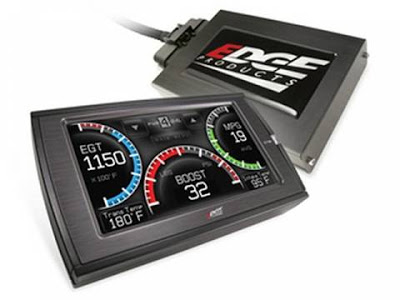 In the old days, enhancing the power of your car or truck meant messing with lots of hardware – things such as headers, rear axle gears, pistons and things like that. Since cars went digital some time ago, though, another technique has evolved to hop up cars: changing out the computer chips in the Electronic Control Modules (ECUs). These ECUs with performance chips are widely available and they are frequently sold as an easy route to big power gains. But do they really work, though?
In the old days, enhancing the power of your car or truck meant messing with lots of hardware – things such as headers, rear axle gears, pistons and things like that. Since cars went digital some time ago, though, another technique has evolved to hop up cars: changing out the computer chips in the Electronic Control Modules (ECUs). These ECUs with performance chips are widely available and they are frequently sold as an easy route to big power gains. But do they really work, though?
To answer these questions, we spoke to several mechanics that have experience with performance ECUs. What we found out is that they do “sort of” work but there is some downside. The reality is that ECU re-engineering can increase power output a modest amount but you should proceed with caution. There are downsides.
How they work
What these performance chips and ECUs do is basically “advance the timing”. This is an old trick and power gains will be found in almost any engine by advancing the timing. While doing this may give you some additional horsepower, it often times increases an engine’s risk of pinging or detonation. As mechanics will tell you, prolonged detonation can damage pistons and cylinder heads. It works but it’s not recommended by any manufacturer.
The advertised power gains often don’t match reality
Many chip tuning companies advertise significant power gains when you replace your existing ECU with their ECU or chip. What most of these companies won’t tell you is that the specific conditions and modifications need to be present. Advancing the timing can increase power, primarily during high RPM conditions, but the sacrifice is normally a loss of power under other conditions.
They will almost always void your warranty
Any car dealer will tell you that messing around with custom ECU chips will immediately void your car’s warranty. This is because that installing “modded chips” will change a whole ton of other things vital to engine operation such as fuel metering, ignition timing, and even redline data. These changes can remove many of the safeguards that the manufacturer programs in to protect their engines.
Conclusion
While custom ECU chips can provide noticeable power gains, they are rarely without tradeoffs. These gains can increase the cost of operation and require changes in useable fuel as well as aftermarket octane boosters. If you are making a racing car, well, you may want to consider a chip replacement. In your regular car, it’s not a very good idea.
Article Courtesy of: Milnes Chrysler Dodge Jeep Ram

